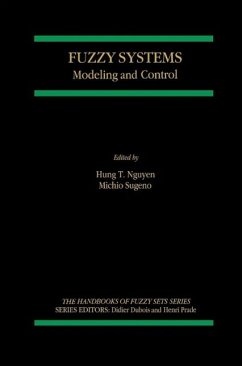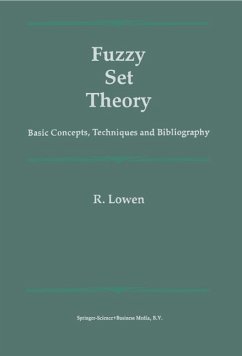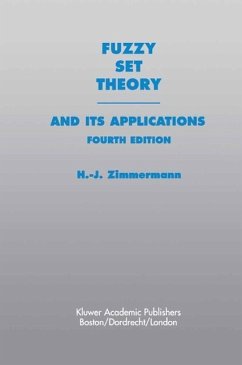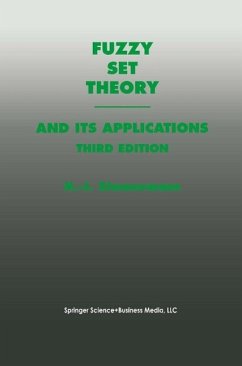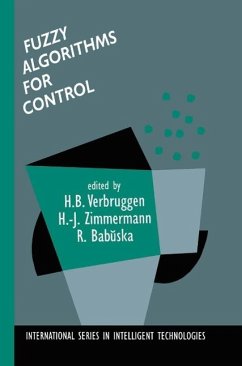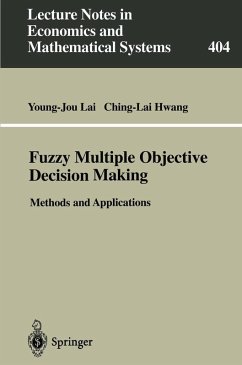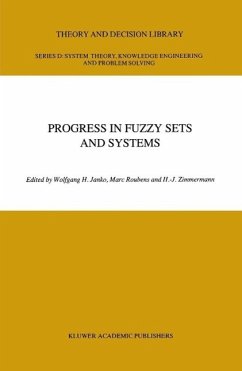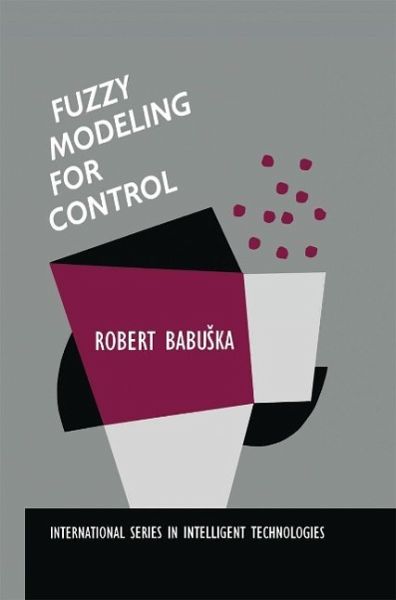
Fuzzy Modeling for Control (eBook, PDF)
Versandkostenfrei!
Sofort per Download lieferbar
160,95 €
inkl. MwSt.
Weitere Ausgaben:

PAYBACK Punkte
80 °P sammeln!
Rule-based fuzzy modeling has been recognised as a powerful technique for the modeling of partly-known nonlinear systems. Fuzzy models can effectively integrate information from different sources, such as physical laws, empirical models, measurements and heuristics. Application areas of fuzzy models include prediction, decision support, system analysis, control design, etc. Fuzzy Modeling for Control addresses fuzzy modeling from the systems and control engineering points of view. It focuses on the selection of appropriate model structures, on the acquisition of dynamic fuzzy models from proce...
Rule-based fuzzy modeling has been recognised as a powerful technique for the modeling of partly-known nonlinear systems. Fuzzy models can effectively integrate information from different sources, such as physical laws, empirical models, measurements and heuristics. Application areas of fuzzy models include prediction, decision support, system analysis, control design, etc. Fuzzy Modeling for Control addresses fuzzy modeling from the systems and control engineering points of view. It focuses on the selection of appropriate model structures, on the acquisition of dynamic fuzzy models from process measurements (fuzzy identification), and on the design of nonlinear controllers based on fuzzy models. To automatically generate fuzzy models from measurements, a comprehensive methodology is developed which employs fuzzy clustering techniques to partition the available data into subsets characterized by locally linear behaviour. The relationships between the presented identification method and linear regression are exploited, allowing for the combination of fuzzy logic techniques with standard system identification tools. Attention is paid to the trade-off between the accuracy and transparency of the obtained fuzzy models. Control design based on a fuzzy model of a nonlinear dynamic process is addressed, using the concepts of model-based predictive control and internal model control with an inverted fuzzy model. To this end, methods to exactly invert specific types of fuzzy models are presented. In the context of predictive control, branch-and-bound optimization is applied. The main features of the presented techniques are illustrated by means of simple examples. In addition, three real-world applications are described. Finally, software tools for building fuzzy models from measurements are available from the author.
Dieser Download kann aus rechtlichen Gründen nur mit Rechnungsadresse in A, B, BG, CY, CZ, D, DK, EW, E, FIN, F, GR, HR, H, IRL, I, LT, L, LR, M, NL, PL, P, R, S, SLO, SK ausgeliefert werden.





